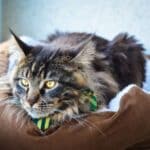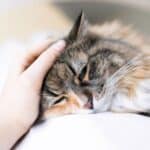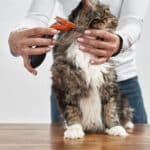Maine Coon heart problems are a serious issue and one that all Maine Coon owners should be aware of. Maine Coon cats are predisposed to hypertrophic cardiomyopathy (HCM), which is a leading cause of death in domestic cats. In this blog post, we will discuss the signs and symptoms of Maine Coon heart problems, as well as what you can do to help keep your cat healthy.
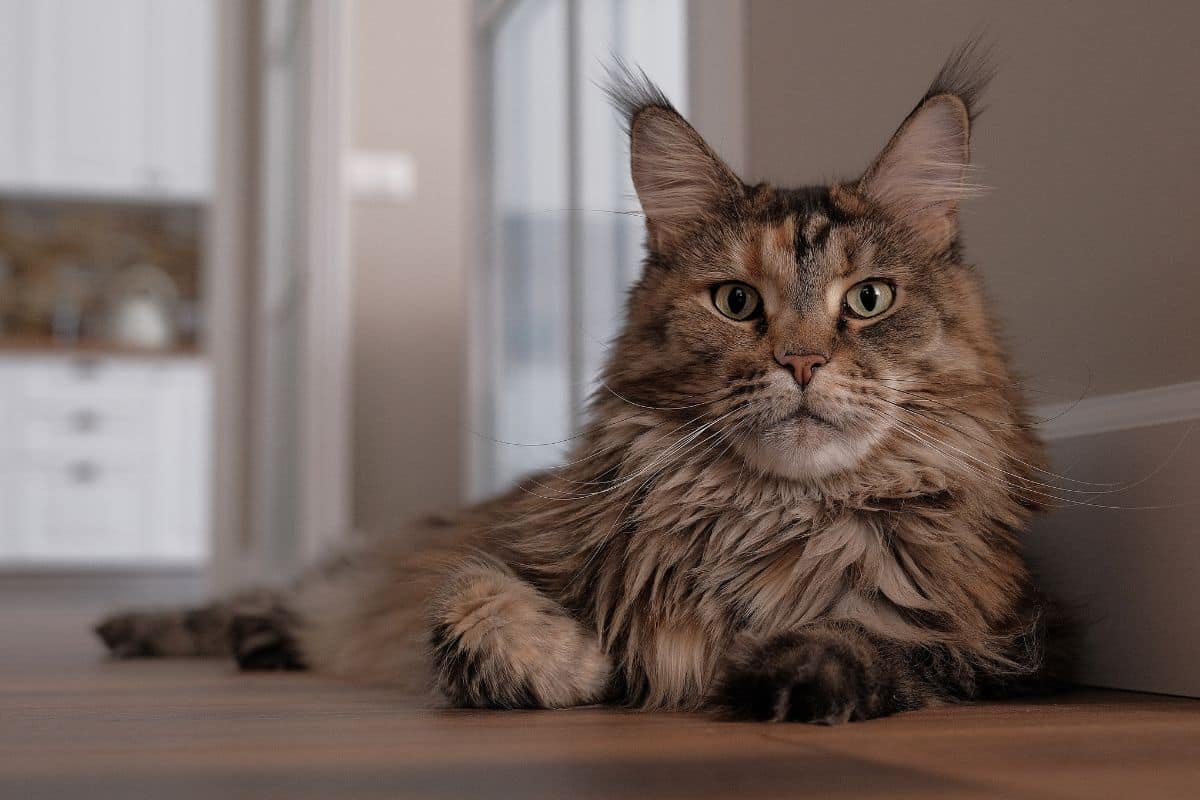
Maine Coon heart problems are most commonly caused by hypertrophic cardiomyopathy (HCM). HCM is a condition in which the heart muscle thickens, making it difficult for the heart to pump blood. Maine Coons with HCM often have an enlarged heart and may develop congestive heart failure.
The most common symptom of Maine Coon heart problems is shortness of breath. You may notice your Maine Coon panting or gasping for air after activity or during periods of stress. Other symptoms include lethargy, weakness, weight loss, and sudden death. If you notice any of these symptoms, it is important to take your cat to the vet immediately.
There is no cure for Maine Coon heart problems, but there are treatments that can help to improve your cat's quality of life. Maine Coons with HCM will typically require medication to help control the symptoms and prevent further progression of the disease. In some cases, surgery may be necessary to remove the thickened heart muscle.
If you have a Maine Coon, it is important to have regular vet check-ups to screen for Maine Coon heart problems. Maine Coons are typically diagnosed with HCM between the ages of two and five, but earlier diagnosis is possible through screening. Your vet may recommend an echocardiogram (heart ultrasound) every six to twelve months to screen for HCM.
Maine Coon Heart Problems are a serious issue, but with regular vet check-ups and treatment, Maine Coons can live long and happy lives. If you have any concerns about your Maine Coon's health, please don't hesitate to contact your vet.
Maine coons are lovely animals who make great pets, however, their hearts are especially susceptible to disease which can be both heartbreaking and costly to treat. Maine coon heart disease is often genetic, so if you are thinking about getting a Maine coon, make sure to do your research first and get a kitten from a reputable breeder who can provide health clearances for the parents. Once you have your Maine coon, keep up with regular vet check-ups and be aware of the signs and symptoms of heart disease so you can catch it early and give your cat the best chance at a long and happy life.
Maine Coon Heart Disease is caused by a mutation in the MYBPC gene, which leads to an abnormal protein being produced in the heart muscle. This protein causes thickening of the heart muscle, which can eventually lead to congestive heart failure. The good news is that this disease is now being diagnosed earlier and more accurately thanks to advances in genetic testing, and Maine Coon owners can take steps to prevent or delay the onset of heart disease in their cats.
Maine Coon Hypertrophic Cardiomyopathy (HCM) is a heart condition that is seen in Maine Coon cats. The incidence of HCM in Maine Coons is not known, but it appears to be more common in this breed than in other breeds. In HCM, the muscle of the heart becomes thickened and can no longer pump blood effectively. This can lead to heart failure and death.
Symptoms of HCM include exercise intolerance, difficulty breathing, and cough. If your cat has any of these symptoms, please take them to the veterinarian for diagnosis and treatment. Early diagnosis and treatment are important for preserving your cat's quality of life and prolonging his life span.
Jump to:
What is hypertrophic cardiomyopathy and what are the symptoms
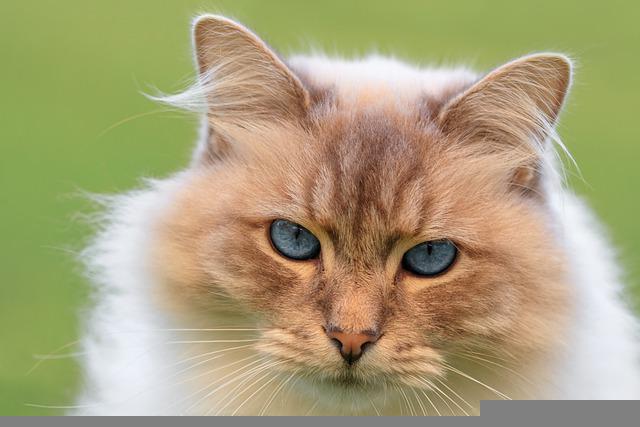
Hypertrophic cardiomyopathy (HCM) is a form of heart disease that affects the muscle of the heart. The muscle thickens and makes it difficult for the heart to pump blood efficiently. This can lead to a variety of symptoms, including heavy or irregular heartbeat, shortness of breath, chest pain, and lightheadedness or fainting. In some cases, HCM can also cause sudden death.
The exact cause of HCM is not known, but it often seems to run in families. Maine Coon cats are particularly prone to developing the condition, which may be related to a genetic mutation that is common in this breed. Symptoms usually first appear in adulthood, though they can sometimes occur earlier
How is hypertrophic cardiomyopathy diagnosed?
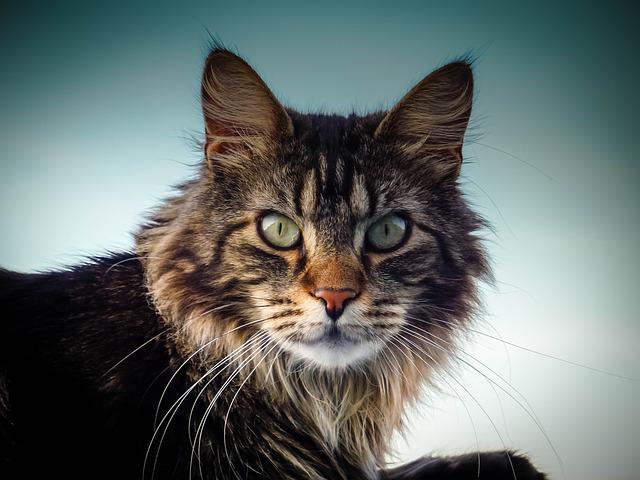
There are many reasons for the thickening of a cat's heart. One common cause is HCM, which can be verified by an Electrocardiogram Test and X-ray from inside the chest wall or blood pressure measurement along with Echocardiogram tests that show these suspect areas more clearly than any other type.
The diagnosis of Maine Coon Hypertrophic Cardiomyopathy can only be confirmed with an Electrocardiogram Test, X-ray chest film taken from the cat's perspective in order to view its heart muscle structure face down on a table, blood pressure measurement via qualified patient Doxies' SpoonTech device.
It uses Diagnostic Radiosurgery technology for accurate readings without pain or discomfort even when located under the skin near the hip bone region because it has been designed especially accordingly so anyone regardless if they're small breed sized breeds like British Shorthairs up through large cats.
How to care for a Maine coon with HCM
Living with the disease
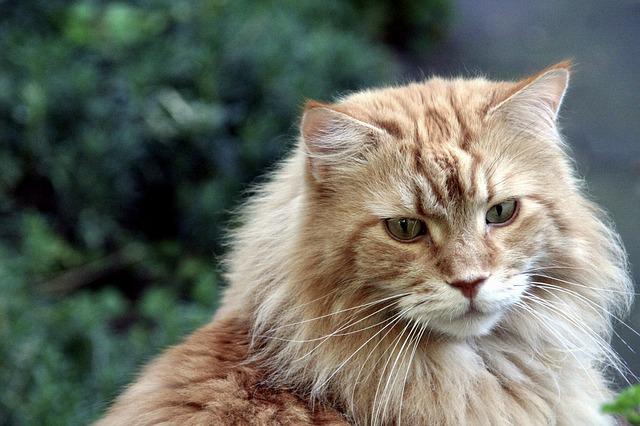
While the disease can be both severe and mild, many Maine Coon cats are diagnosed with HCM. The progression of this condition is so slow that these animals display no health issues related to it in their lifetime--although for those who do develop heart failure or pulmonary oedema respectively; These diseases make breathing difficult as blood clots form on your lungs' walls blocking oxygen flow through them making every breath painful.
Your Maine Coon cat may have a heart problem. These become more crucial to note if your pet tests positive for HCM and has any other symptoms that could indicate the presence of this disease, such as loss or change in appetite; weakness which becomes apparent when rising from a sitting down position (or standing up quickly); uneven heartbeat--either PVC's( premature ventricular contractions) where one side beats much faster than another does, BPMs occurring at very low frequency but lasting longer.
Prevention
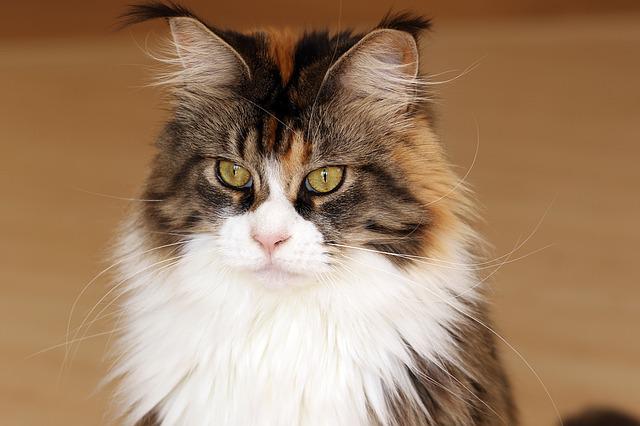
Experts recommend that diagnosed cats should be started on a sodium-restricted diet to stabilize blood pressure and keep them comfortable. While no medicine has consistently proven helpful in managing or curing this condition, veterinary experts have had considerable success treating symptoms of it by maintaining quiet surroundings with little stress for their patients.
Breeders and owners of pure-bred Maine Coons should be made aware that the cats may end up in shelters if they do not seek treatment for HCM. This is a long term commitment, so adopters need to know what kind of expenses are ahead before adopting one with this condition!
The long-term solution to this problem is difficult because it requires strong collaboration between cat breeders and owners. Breed clubs need mandatory examinations for every cat before they are bred, while pet guardians must take their animals in compliance with state laws that require health clearances too - but there's no way of ensuring both parties follow these guidelines without some kind of authority telling those who do wrong how serious disciplinary action will be if obeying Codes aren't met
The United States has very few regulations on genetically modified organisms (GMOs), which makes eradicating diseases like HCM difficult as well since many experts agree major regulatory bodies such as The American Kennel Club should join hands with government agencies.
Maine coons genetics
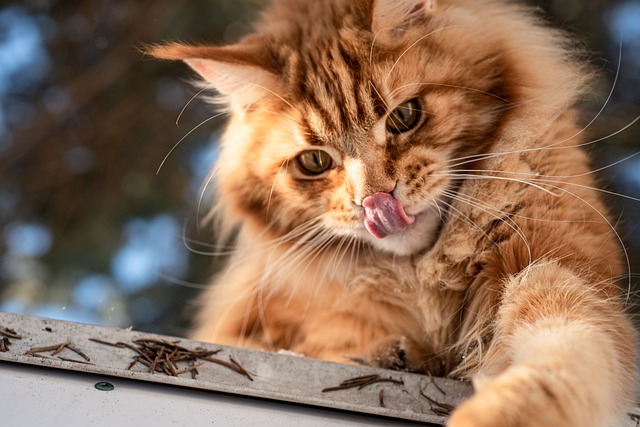
Maine Coons are known for their large size, but they're also prone to certain inherited health disorders. Hypertrophic Cardiomyopathy is one such disorder that can be detected with a DNA test and occurs when there have been too many mutations in your cat’s cardiac muscle cells due to something different from this specific gene mutation we talked about earlier - which means some cats don't develop the illness at all despite having it present throughout their lifetime.
Conclusion
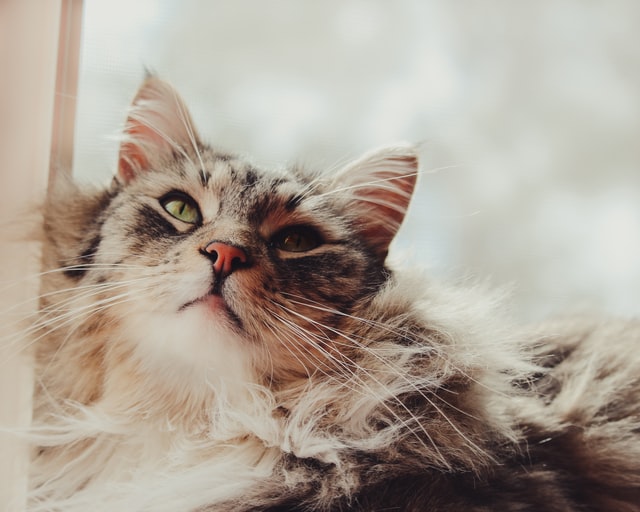
It is believed that the Maine Coon Hypertrophic Cardiomyopathy (MCHC) gene mutation can be passed on through generations, causing thickening of heart walls and many major problems in cats' health.

